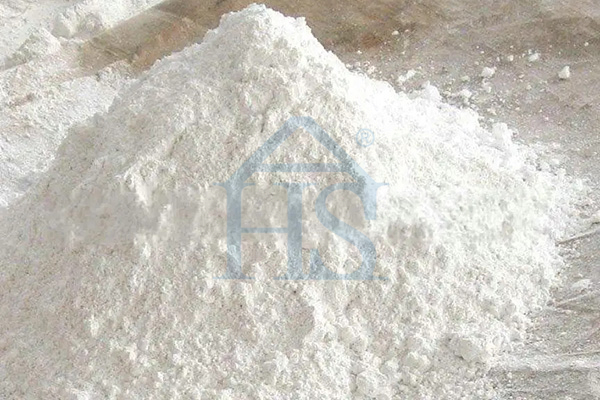Concrete is a widely used construction material, and its properties play a crucial role in determining the strength, durability, and overall quality of the final product. One such property is the specific gravity of concrete, which is a measure of its density compared to water. In this article, we’ll take a closer look at what specific gravity is, why it’s important in concrete, and how to determine it.
What is Specific Gravity of Concrete?
Specific gravity is a term used in various fields, including chemistry, physics, and materials science, to describe the ratio of the density of a substance to the density of a reference substance. In the case of concrete, the reference substance is typically water, and the specific gravity of concrete is calculated as the ratio of its density to the density of water.
The formula for calculating specific gravity is relatively simple:
SG = ρ / ρ_w
Where SG is the specific gravity of concrete, ρ is the density of concrete, and ρ_w is the density of water (which is equal to 1 g/cm^3).
Why is Specific Gravity Important in Concrete?
Knowing the specific gravity of concrete is important for several reasons. For one, it provides information about the composition and quality of the concrete mixture, which can be used to determine its strength and durability. Additionally, the specific gravity of concrete is used to calculate other important properties, such as the unit weight and void ratio.
Factors Affecting Specific Gravity of Concrete
Type of Aggregate
The type and size of the aggregate used in the concrete mixture can affect its specific gravity. For example, lighter aggregates such as perlite or pumice can lower the specific gravity of concrete, while heavier aggregates such as basalt or ironstone can increase it.
Moisture Content
The moisture content of the concrete mixture can also affect its specific gravity. A higher moisture content will generally lead to a lower specific gravity, while a lower moisture content will result in a higher specific gravity.
Porosity of Concrete
The porosity of concrete, or the amount of empty space within the mixture, can also impact its specific gravity. Higher porosity generally means lower specific gravity, while lower porosity results in a higher specific gravity.
Age of Concrete
The age of the concrete can also affect its specific gravity. As concrete cures and hardens, its specific gravity may increase due to the consolidation of the mixture.
How to Determine Specific Gravity of Concrete
There are two main methods for determining the specific gravity of concrete: laboratory testing and field testing.
Laboratory Testing
This method involves taking a sample of the concrete mixture and determining its density in a laboratory setting. The sample is typically oven-dried to remove any moisture, and its weight and volume are measured to calculate its density. The specific gravity can then be calculated using the formula mentioned above.
Field Testing
Field testing involves determining the density of concrete in situ, or in its actual location. This can be done using a variety of techniques, such as the use of a hammer or the measurement of surface elevations.
The choice of method will depend on the specific circumstances of the project, and both methods have their advantages and disadvantages. For example, laboratory testing provides more precise results, but is time-consuming and requires a laboratory facility. Field testing is quicker and more convenient, but is generally less accurate.
Importance of Specific Gravity in Concrete Design
The specific gravity of concrete is an important factor in concrete design and engineering. A few key ways it affects concrete design include:
Strength of Concrete
The strength of concrete is directly related to its specific gravity. Concrete with a higher specific gravity will generally be stronger, while concrete with a lower specific gravity will be weaker.
Density of Concrete
The density of concrete is also affected by its specific gravity. A higher density means a higher specific gravity, and this can affect the overall weight and load-bearing capacity of the structure.
Workability of Concrete
The workability of concrete, or how easily it can be placed and compacted, is also influenced by its specific gravity. Concrete with a lower specific gravity will generally be more workable, while concrete with a higher specific gravity will be less workable.
Quality Control
The specific gravity of concrete can also be used as a quality control tool. By comparing the specific gravity of a sample of concrete to the expected values, engineers and quality control professionals can determine if the mixture is within acceptable limits and if any adjustments need to be made.
The specific gravity of common concrete
The specific gravity of concrete can vary based on the mixture of ingredients used, but some common ranges for specific gravity are:
-
- Normal weight concrete: 2.3 to 2.7
- Lightweight concrete: 1.0 to 2.3
- Heavyweight concrete: 2.7 to 3.2
It is important to note that these values are general ranges only and the specific gravity of specific concrete mixtures may vary. You can consult Henan Superior Abrasives or perform specific tests to determine the specific gravity of a specific concrete mixture.
Conclusion
The specific gravity of concrete is an important property that affects its strength, durability, and overall quality. It can be determined through laboratory testing or field testing, and is influenced by factors such as the type of aggregate, moisture content, porosity, and age of the concrete. Understanding specific gravity and its impact on concrete design and engineering is essential for ensuring the success of any construction project.





